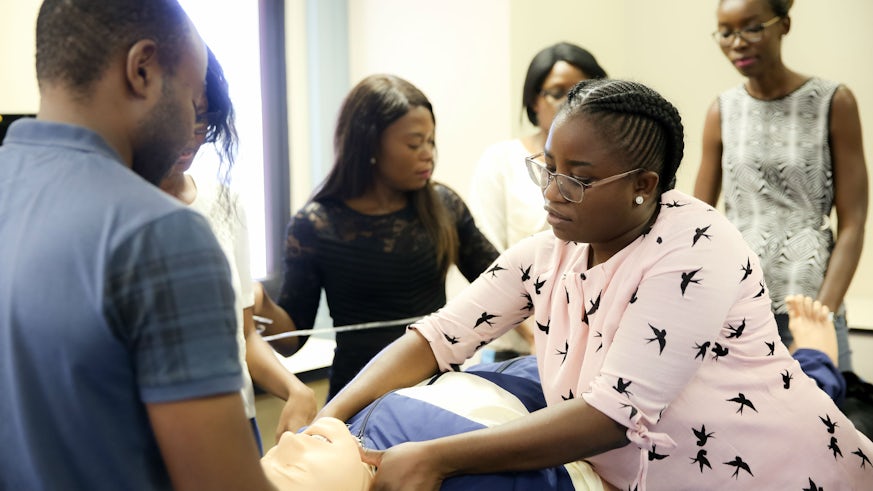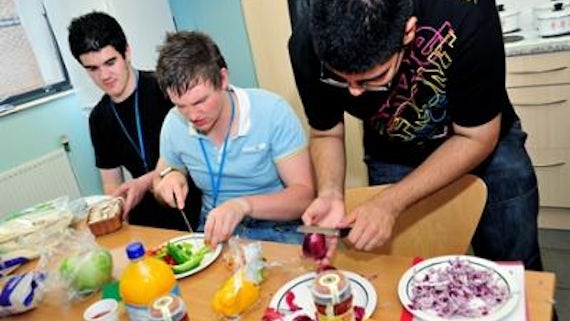Revolution in patient care
26 February 2018

A major breakthrough is being made in life-saving medical care in the southern African country of Namibia thanks to Cardiff University.
Namibia has fewer than 10 state anaesthetists - who are crucial for surgery and specialist care - to support a population of 2.5m people.
But that will change as Namibia trains and produces its own specialist anaesthetists for the first time with the support of Cardiff University’s Phoenix Project, a highly successful partnership with the University of Namibia (UNAM).
A new four-year Masters course in anaesthesia at UNAM will help address the acute shortage of anaesthetists which leaves patients facing long waiting lists for surgery and a lack of specialist care during emergency operations.
Women are 17 times more likely to die in childbirth in Namibia than Wales, often because there is nobody to give anaesthesia. If Namibia had a proportionate number of anaesthetists to Wales, it would have at least 300 qualified anaesthetic specialists/consultants.
The new course will be supported by Professor Hall and anaesthetic specialists from Cardiff University.
Phoenix Project leader Professor Judith Hall, who is herself a consultant anaesthetist, came up with the idea for the new anaesthesia course and worked with partners at UNAM to develop it.
She said: “Surgery can save lives but you can't have surgery without anaesthesia, and Namibia has so few state anaesthetists. This Masters course will create a new body of professional anaesthetics doctors in Namibia in sufficient numbers to truly transform care. It will also help to support already overstretched surgical services, and to improve outcomes for patients in a country with many healthcare challenges.”
Professor Frednard Gideon, Pro-Vice Chancellor: Academic Affairs at UNAM said: “The start of the training of the anaesthetists is a huge relief to the health care and pain management delivery in the public hospitals in Namibia. It also key for a sustainable system of a training programme for doctors as anaesthetists in the country.”
Ebba Shaanika, a student on the Master’s in Anaesthesia programme, said: “In Namibia, in the public health sector, currently we do not have enough anaesthetists. We are happy to be part of the first group on the Master’s programme and specialise in the field, as it is an important part when patients undergo an operation of surgery.”

The first cohort of students, who started the new course in February, will transform the number of dedicated anaesthetists available.
The Masters will build self-sufficiency for the training of specialist anaesthetists and improve the quality of patient care.
The Phoenix Project has previously provided intensive crash courses in anaesthesia and critical care skills for students and doctors around the country.
Phoenix is a collaboration between Cardiff University and UNAM whose work has included major road safety initiatives, specialist training for nurses and midwives, software development and the support of Namibia’s multilingual communities.
Share this story
Read more about our transforming communities projects that show our commitment to improving the wellbeing of communities in Wales and beyond.




